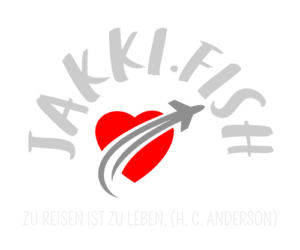Korea Joongang Daily schreibt über „revolutionären“ Unterricht:
Journalism class gets students talking
‘It’s all new,’ said one, ‘since we ... are asked to actively take part’
Oct 31,2017
The air was unusually tense at the weekly journalism class taught in English at Myung Duk Girls’ High School in Gangseo District, western Seoul. “Han-byeol, what was the article that you thought was interesting this week?” Lee Sung-eun, a Korea JoongAng Daily reporter, asked one of the dozen or so students on Oct. 20. As Kim Han-byeol stood up, students’ sighs of relief could be heard - relief that they were not chosen. “I read an article about Catalonia,” she said, speaking slowly in English. “I picked it because I went to Madrid during the Chuseok holiday and I remembered that there were lots of festivals at the time, rather than demonstrations, which are taking place there. It also said…” she faltered, turning to ask her classmate a word in English she couldn’t remember. “Right, that the dispute has been ongoing from 2005.” “If it has been ongoing for so long,” Lee asked, “what makes it newsworthy now?” “Because some people got hurt in riots after the Chuseok holiday,” Kim replied. It was the sixth of 11 planned classes, jointly run by KC University and Gangseo District Office and sponsored by the Seoul city government. According to some students, the tension in the room was the result of how the class is structured so as to encourage student participation. “In this class, we are not asked to simply understand what we read in English but to digest the material and to recreate them,” said Go Eun-byeol, a sophomore at the school. “And we are given detailed feedback on the articles that we write - it’s all new, since we are asked to take in information passively in other classes, rather than actively take part.” “I wish I had something like this at my high school,” said Park Jin-kyung, a senior at KC University who volunteered to become a mentor for the class. “It’s also encouraging to be helping high school students improve their skills and find out more about journalism.” KC University in Gangseo is among the 13 universities in Seoul selected by the Seoul Metropolitan Government as recipients of its Campus Town projects. Campus Town project is the Seoul city government’s 5.1 billion won ($4.5 million) initiative this year to build start-up-friendly facilities on campuses and rejuvenate areas near campuses. The city government plans to work with at least 50 universities by 2025.As part of the project, KC University coordinated with Gangseo District Office this year to locate and communicate with elementary, middle and high schools in the district to identify their educational needs. Two schools were selected for the English Newspaper in Education class - Myung Duk Girls’ High School and Deokwon Girls’ High School in Gangseo.The Korea JoongAng Daily was brought onto the project via an agreement with the KC University to provide the contents, curriculum and reporters to teach the classes for 11 weeks. ... Park said the class has given her some real-life practice.“Things you learn at school, you don’t know if they’re applicable in real-life situations,” she said. “But the skills I picked up in this after-school class can be applied directly in my life and I am thankful for that.” ...
Diese Form von Unterricht, wo nur der Lehrer spricht und die Schüler nur zuhören und so viel wie möglich davon auswendig behalten, ist wirklich für mich nicht vorstellbar. Selbst in der DDR gab es Kommunikation zwischen Schülern und Lehrern – und unser Bildungssystem war schon sehr autoritär. Aber es erklärt, weshalb unsere Kollegen in Trainings wie im daily business so reagieren, wie sie reagieren: Zurücklehnen, zuhören, Mund halten. Fragen? Gibt es nicht – man würde das eigene Gesicht verlieren („zu doof zum kapieren“) und der Lehrer gleich mit („unfähig zu erklären“). Die Folgen spürt man oft erst sehr viel später, nämlich wenn sich herausstellt, dass trotz Training, trotz „Workshops“ rein gar nichts angekommen ist und sie lieber Schwachsinn machen, als nochmal zu fragen. Zum Verzweifeln…
